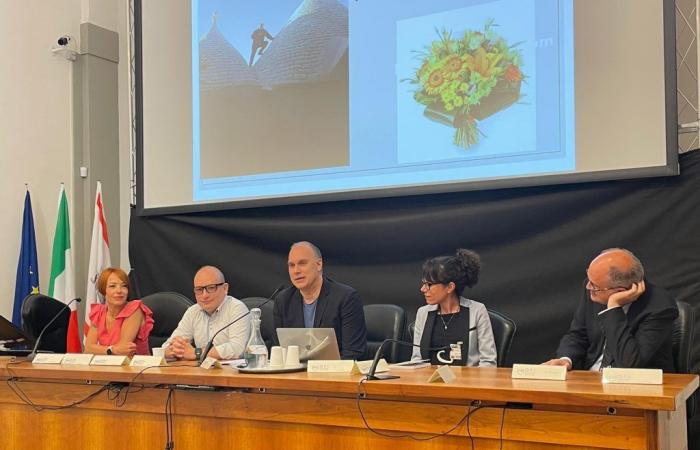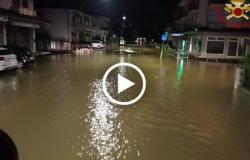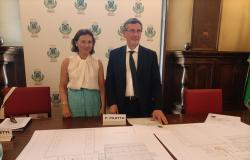Managing the end of life in the emergency area. A complex topic, which touches on different areas, from the ethical to the technical, which was discussed during the training event “The importance of limits in managing the end of life in urgent emergencies”. Organized by Aies (Italian Health Emergency Association), in collaboration with the Order of Nursing Professions of Florence-Pistoia, the conference was held in the Spadolini Auditorium of Palazzo del Pegaso, headquarters of the Regional Council of Tuscany.
The speakers all agreed in highlighting that talking about the end of life is more important than ever, that specific training on the end of life is needed, not limited to technical aspects alone, but also extended to emotional and spiritual support. This must be guaranteed to all healthcare workers, with the aim of preventing burnout and ethical discomfort. Continuous training of professionals in palliative care and end-of-life care must also be provided.
Doctors, nurses, psychologists and administrators spoke during the conference. Among them, Enrico Sostegni president of the Health Commission of the Regional Council of Tuscany; Roberto Romano, president of Aies (Italian Academy of Health Emergency) and Simone Magazzini director of the emergency department of Ausl Toscana Centro. And again: Yari Bardacci, nurse and member of the Aies ethics committee; Valentina Settimelli psychologist, psychotherapist, Sosd, psycho-oncology ASL Toscana Centro; Alessio Lubrani director Nue 112 Tuscany Region, Hems doctor Pegaso 1 crew; Piero Paolini director CO 118 Florence-Prato; Paola Arcadi educational director of the degree course in nursing at UniMi, Asst, Melegnano and Martesana and Pio Lattarulo director of health professions in the Local Health Authority of Taranto, both members of the Aies ethics committee.
Paraphrasing the words of Enrico Sostegniit is important that the end of life “becomes a topic of discussion among citizens, in the community, in the organization of the health system. Caring means giving maximum support when it is possible to provide an answer to health problems, but also considering that there ‘it’s the end of life and therefore we shouldn’t get too carried away at the moments when it is most appropriate to accompany people on their last stretch of their existential journey.”
To do the honors of the house, the president of Opi Florence-Pistoia David Nucci: “In end-of-life management, the limit is certainly a fluid concept and is linked to the idea that the professional creates and builds himself based on his own experience of life, work and his own ethical and bioethical beliefs. It is therefore important to talk about it , in order to lead the professional to reflect and share ideas and care strategies for our patients. Some ideas emerged from the meeting that lead us to profound reflections – added Nucci – in particular on the concept of multi-professional teams, of application of the provisions. treatment advances and on the topic of the professional’s ethical beliefs”.
“We are waiting for the code of ethics to be updated and revised as soon as possible to align ourselves on this crucial issue for patient care – he commented Pio Lattarulo, manager of health professions in the Local Health Authority of Taranto and member of the Aies ethics committee -. Healthcare professionals are faced with the limit. We need a continuous dialogue in search of what is right, listening to the preferences of each patient, in line with her values and those of the professions to find the best path towards the most appropriate treatment.”
Satisfied with the success of the conference Roberto Romano, president of Aies, (Italian Academy of Health Emergency). “Talking about issues such as the end of life is never easy – he declared -. This day represents a seed that we wanted to try to sow, and I believe we succeeded. This course touched on both the technical aspects of the profession and the ethical and psychological ones. emergency approach to the various types of patients, especially oncological and end stage patients, must take into account the possible outcome”.
Online too Paola Arcadi, educational director of the degree course in Nursing, Unimi, Asst Melegnano and Martesana and member of the Aies ethics committee. “We had the opportunity to reflect on a key word of care, which is the word limit – he said -. We often think that the limit is something that closes: today instead we talked about how much the limit in the management of the end of life in the emergency emergency is instead a possibility of treatment, based on listening and sharing decisions in such a fragile terrain as that of an urgent emergency”.
Source: Opi Firenze-Pistoia – Press office






